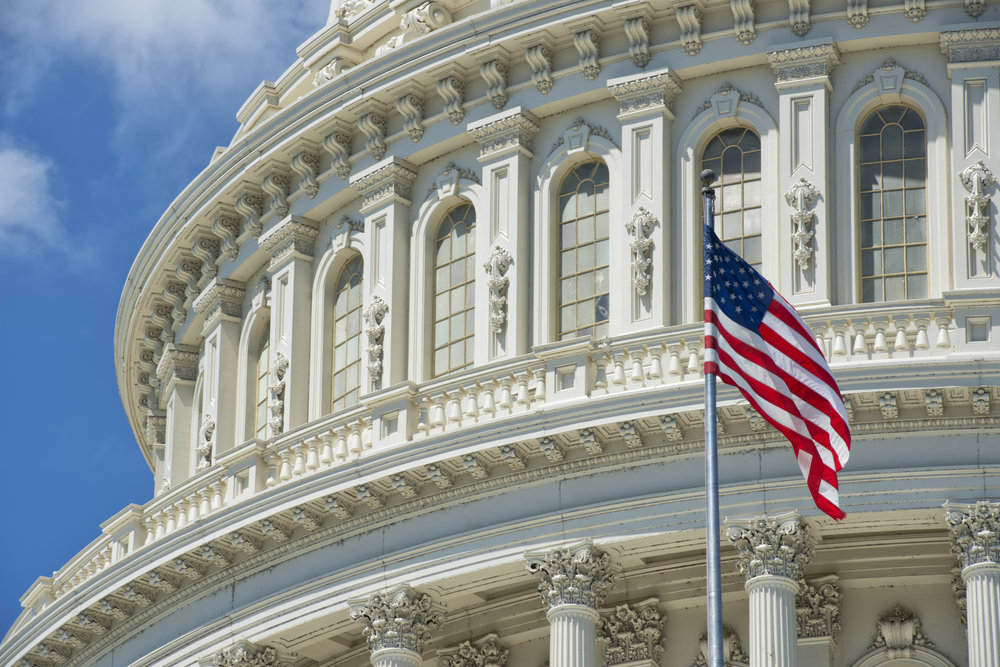
UK government set to make all your licenses and other official documents available via a digital wallet
Hot on the heels of its plans to turbocharge AI usage, the UK government has today announced that it wants to introduce a new GOV.UK Wallet, a digital wallet that will hold official documents.
Starting with Veteran Cards and Driving Licenses this year, it will expand to take in things like Blue Badges for disabled drivers, Personal Independence Payment (PIP) letters, Disclosure and Barring Service (DBS) checks and every other credential issued by the government.

UK government sets out plans to turbocharge AI use
Artificial intelligence will be unleashed across the UK to deliver a decade of national renewal under a new plan announced by the government.
The Prime Minister has agreed to take forward all 50 recommendations set out in the AI Opportunities Action Plan released last year, in a plan to make the UK ‘irresistible’ to AI firms looking to start, scale, or grow their business.

NIS2 could prevent cybersecurity incidents but many businesses aren't ready
The EU's latest Network and Information Security Directive (NIS2) comes into effect on October 18, but new research finds that although nearly 80 percent of businesses are confident in their ability to eventually comply with NIS2 guidelines, up to two-thirds say they will miss this imminent deadline.
The survey from Veeam Software, of over 500 IT decision-makers from Belgium, France, Germany, the Netherlands and the UK, shows 90 percent of respondents reporting at least one security incident that the NIS2 directive could have prevented in the past 12 months.

Global coalition aims to boost cyber skills and tackle threats
Representatives from leading nations including the US and UK are meeting for three days of talks to focus on tackling global cyber threats and boosting cyber skills.
Over the next three days, countries including the EU member states, Canada, Japan and international organizations such as the World Economic Forum and the OECD will discuss how global cyber security workforces can be strengthened, from agreeing ways to boost cyber skills to developing new professional standards.

UK government announces new plans to protect data centers
Data centers powering the UK economy will be designated as Critical National Infrastructure alongside energy and water systems under new government plans.
This is the first Critical National Infrastructure (CNI) designation in almost a decade, since the space and defense sectors gained the same status in 2015.

UK government wants the AI to eat your homework
The UK government has announced the launch of a new scheme that will encourage the building of new generative AI tools to help teachers when they’re planning lessons or marking homework.
This will involve the creation of a 'data store' for education data including the national curriculum, guidance for teachers, lesson plans and more. The £3m ($3.96m) data store will help tech companies build AI tools that teachers can trust to help in their work by making this data machine readable.

The EU Digital Markets Act and what it means for business [Q&A]
The Digital Markets Act (DMA) is aimed at ensuring a higher degree of competition in European digital markets. It seeks to prevent big companies from abusing their market power and allow new players to enter the market.
We spoke to Chris Hewish, chief strategy officer at video games commerce company Xsolla, to discuss the implications the DMA has on game developers and publishers, particularly in the context of digital distribution platforms, app stores, and online marketplaces.

VPN demand surges in the face of government social media restrictions
Governments, particularly those with a more authoritarian bent, really aren't keen on social media as it threatens their ability to control the narrative.
They especially don't like X since Elon Musk's takeover and stated commitment to free speech. In Venezuela the government recently banned the platform for 10 days. Even in the UK fingers have been pointed at the influence of social media following recent riots.

New nation-state campaigns target government, banking and healthcare
Researchers at secure browser company Menlo Security have uncovered three new nation-state campaigns employing highly evasive and adaptive threat (HEAT) attack techniques.
In a 90-day period, the campaigns -- LegalQloud, Eqooqp, and Boomer -- compromised at least 40,000 high-value users, including C-suite executives from major banking institutions, financial powerhouses, insurance giants, legal firms, government agencies, and healthcare providers.

UK tech execs want more government oversight of AI
Research from IT consultancy Zartis shows 72 percent of UK tech executives want more AI regulation, and almost a third (29 percent) want 'a lot more'.
The study, carried out by Censuswide, surveyed 100 senior technology executives in the UK and finds around 80 percent claim global government coordination of AI regulation is important to their company and 41 percent say it’s very important.

80 percent of organizations not ready for CISA rules on security practices
The US Cybersecurity and Infrastructure Agency's (CISA) Secure Software Development Attestation Form rules come into force on June 11, 2024.
This requires software producers who work with the US government to adhere to and confirm the deployment of key security practices. But new research from Lineaje reveals that 80 percent of companies are not ready.

Why the CHIPs act is the lifeline US tech desperately needs
In the next five to ten years, the United States faces a critical juncture in its technological trajectory, heavily influenced by the implications of the CHIPs Act. As a seasoned venture capitalist and Managing Director of Venture Labs, I have closely monitored the evolution of technology and innovation ecosystems. The CHIPs Act represents more than just a policy shift; it is a strategic maneuver poised to revolutionize the hardware industry, foster innovation, and bolster national security.
Historically, hardware production has been dominated by a few key players, leading to centralized control that stifles competition and innovation. The CHIPs Act aims to dismantle this concentration, decentralizing hardware production and empowering a diverse array of developers. This shift is crucial not only for fostering competition but also for driving technological advancements. By creating an environment where smaller companies can thrive, we can expect a surge in innovative solutions that address emerging challenges across various industries.

Cyber anxiety on the rise in the UK
A new study reveals that 56 percent of UK adults are more worried over potential cyberattacks since Russia's invasion of Ukraine.
The study from Illumio surveyed 2,000 people to understand their attitudes towards cybersecurity and finds only 47 percent are confident in central government's capabilities to ward off digital threats effectively and just 35 percent have confidence in local government.

Cyberwarfare incidents reported by almost half of UK firms
New research shows that 49 percent of UK businesses have reported cyberwarfare incidents to the authorities.
The report from Armis also shows 52 percent of UK IT leaders believe the government can't defend its citizens and enterprises against an act of cyberwarfare.

Six ways your government agency can establish a safer agile ecosystem
Part 2: An organization’s agility is synonymous with its resilience in the face of change. Agility allows enterprises to face industry-spanning challenges without experiencing catastrophic disruption in their operations, and agile software development makes this concept a reality. Beyond that, it ensures organizations can service external and internal stakeholders rapidly and reliably -- and for government agencies, it ensures continuity of mission services.
But in agile organizations, there are unique security risks -- outlined in part one of this series -- such as compromising security processes in the name of speed and differing security practices across cross-functional teams. To safeguard these projects, professionals must create a cybersecurity architecture as unique as the agile environments they’re protecting.
